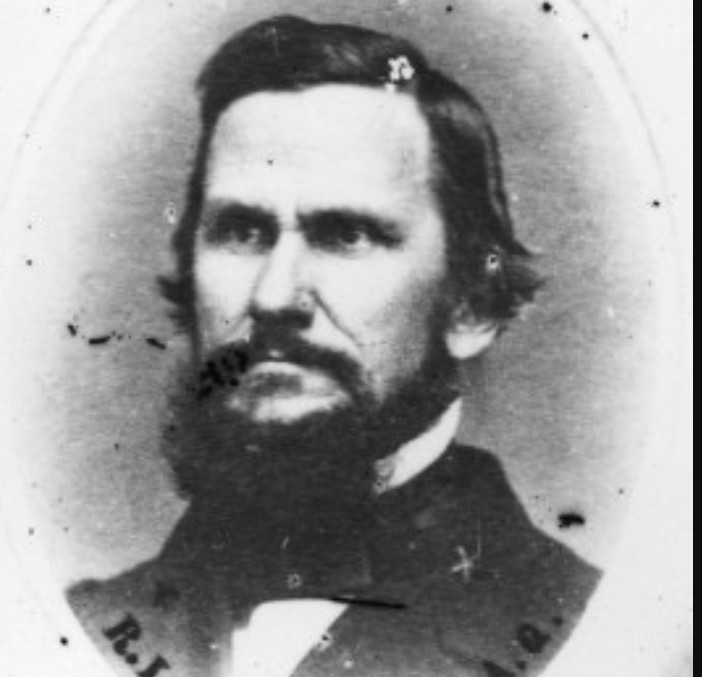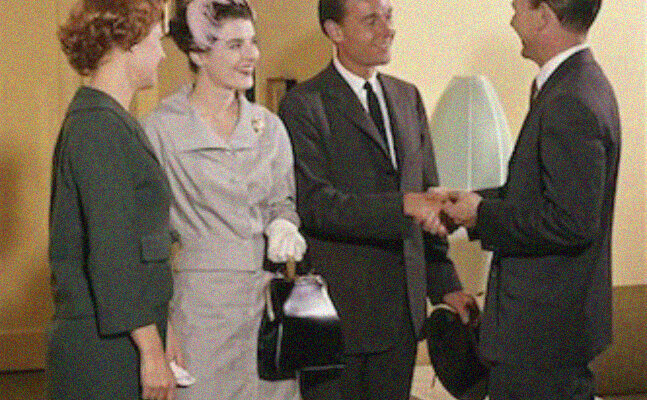Along with my new strategy toward gardening, which you can read about in my previous article, I’ve been re-examining my words and expressions, my greetings and salutations. I want my language to be perfumed with a distinctively Southern fragrance. I want every verbalism spoken to evoke a revival of Southern culture, within the ears of those I am addressing, guiding their senses to the aroma of a free and independent Dixie.
Therefore, if I’m engaged with an unfamiliar person, I will start the conversation by asking, “Where are you from, and who are your people?” This was a common way, in the South, to establish a connection with someone you had just met, and it is an effective question in exposing someone’s predisposition to our movement. It is a beautiful way of introduction, it is personal and intimate, and distinctively Southern. It is in direct contrast to the Yankee brutalist introduction of asking someone what they do for a living, which with regards to the priorities of life, tells you little about that person’s being, or connections.
Now, when you introduce these types of connectional questions, you’ll get a variety of responses, some will be familiar and respond accordingly, others will be somewhat familiar and await your guidance, and some will look in complete puzzlement. What you are hoping for is an avenue, a pathway into a deeper conversation about the future of the South, by exposing them to the connectional tapestry of our people. They will be shocked how closely we are all connected, and by using the right introduction, we can establish a path to unifying our people again. I’ve been using this technique, and it has always had a positive result.
Another concern that has been weighing heavily on my mind lately, how we address one another, especially women. The rise of feminism, and the frequency of male/female interaction in the workplace, has not raised a woman’s status as promised, but rather demeaned her. This commonality has weakened and vulgarized our culture. Therefore, I have restructured the way I address women, when possible.
There was a time in the South when women were not called by their first names, except in close familial relationships. I have, therefore, started addressing women as Mrs. or Miss, especially at church. It’s an oddity, presently, for a woman to be addressed in the presence of her husband this way. However, when I explain why, they always find it charming, and if they are of a certain age, they remember it to be the proper way.
Southern men should lead the way and not be too familiar with women to which they are not married, nor related. To not do so is a path to waywardness. An elevation of a woman’s status, this peculiar separation from our reconstructed society, will distinguish us once again. And it has always opened an avenue for a greater discussion of how much we have lost of our Southern culture.
These are simple adjustments to our language, as easy as calling meals by their proper Southern naming convention, such as the last meal of the day as being “supper.” It just takes a little forethought, a retraining of our minds, but it will pay great dividends for our people, now and in the future.
Deo Vindice!
God Save The South!

Service to God and honor to the South.






Good and relevant post, and good advice overall. I entertain a relatively minor quibble with something you wrote, however. To wit:
My quibble is with the title “Ms.” An unfamiliar married woman should always be addressed as Mrs., and an unmarried woman as Miss. It might be acceptable to refer to a woman who at one time was referred to as a “spinster” as Ms., but I doubt that is an appropriate usage either. I quickly looked it up in Merriam Webster’s online dictionary and found this interesting note attached:
Upon which entry, I rest my case. 🙂
P.S.: I do a lot of genealogical research. As such, I can tell you that the Mrs./Miss distinctive in old marriage licenses/documents is often very helpful. Whereas “Ms.,” which was never used in the old marriage documents, would potentially further confuse matters. I spent an inordinate amount of time trying to track down one female ancestor precisely because her son-in-law served as the “informant” when she died and had entered her previous married name (Winscott) as her maiden name on the Texas death certificate in question. It wasn’t until I finally found her second marriage certificate that I was able to reliably identify her as “our Mary” – Mary Morris Winscott Jackson. And on that certificate (her marriage certificate issued for her and Mr. Jackson) she is entered as Mrs. Mary Winscott. Had she been entered as “Ms.,” on that document, it would have resulted in yet another difficulty among dozens of others in nailing her down.
You are correct, I should have added to Miss. to my distinctive.
Thanks!
Interesting. And speaking of “supper,” did you know supper plates were the size of side dish plates and serving platters were what we think of as a normal plate from which we eat … prior to sometime in early last century? Yep. Someone(s) in the food industry got a great marketing idea : Show serving platters as dinner plates. The sheeple will EAT MORE and we’ll make more profit. We ate more all right. Just look at us!
Once you create that “avenue” into conversation, lead them into how the south was way ahead of the north in per capita wealth, education and quality of life until satanist Lincoln did his thing … then sealed our fate with “reconstruction.” Go into detail about reconstruction.
And of course no conversation down such an avenue would be complete without presenting the most obvious SOLUTION. 🙂
Interesting observation about the onetime disparity in per capita wealth. It goes a long way in explaining Lincoln’s covetousness and the REAL reason he wouldn’t ‘let the South go.’ Curiously, even today, after the pillaging of Mississippi — which has now become one of the least affluent states — their people are among the leaders in charitable contributions and generosity with what little they have. Deo Vindice.
Southern culture is politeness and consideration derived, as dialects go. As an avid sports fan, today I am bewildered by the casts of hosts dedicated to prognostication in this venue and their accustomed manners of speach. Most “entertaining” is the silent “t” speak. Anal retentive sounding, libtard announcing and especially in combination with eubonic speaking co-host, this British variant comes across as about kneeling in front of a riotous gangs of thugs does. The punctuation amounts to what the clicks and clucks of a Hotentot communicae came across as when first encountered in the Congo. Yes, Southerners bring speech aborrhent to those who serve themselves first and chose the largess promptly.
Great article Father Dabney.I always make sure I say Dinner then Supper as Southerners correctly and traditionally called them.Jew TV has ruined that for 99 percent because they take their cues from the Jew box and not their kin.My great grandfather would remark about a young lady someone might be courting by saying”She looks like good stock”.Also my Daddy always said “Lets get some petrol”although in a joking way because everyone said gas by then because of the Jew box.Isn’t it awful when we have to give some sort of back-step when we use Southern terms like we’re the wrong ones.When I try to tell young food servers its break from the fast/Breakfast,Dinner and Supper they look at me like I’m crazy.At least some young men seem to care about how things were when they were great but young gals are materialist to their cores.Once again I enjoyed the subject matter and thank you very much.Christ is Lord! Also my Daddy went to Clemson when it was still White,Christian and male.His professor would say “When you put that stamp on a letter(it had Lincoln on it then)be sure to give it a good firm smack”.But now Clemson is just a nigger worshipping place full of worthless,materialists.Only God can bring the good things back again by tearing it all to the ground and starting over.I only live in the past and await my true home in Heaven.This site helps me hold onto things that have been slipping away my whole life,for that each and every person here deserves my gratitude.